Candidate Directors for the 2023 Elections
Below you find a detailed description of each of the 12 candidates, in alphabetical order. You can find even more information about them on their personal websites. This year 7 new Directors for 2024-2026 will be elected.
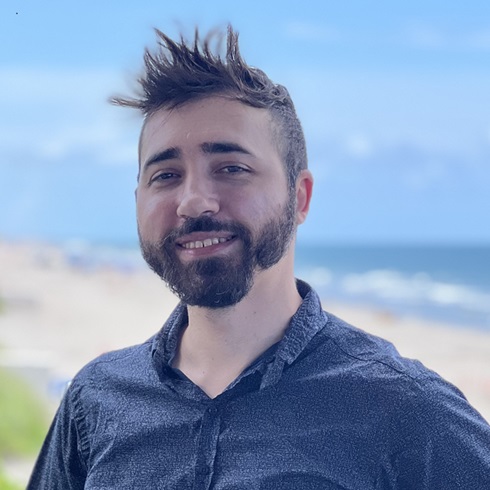 |
Rodrigo de Oliveira Pena
Faculty Member/For-Profit Employee
Florida Atlantic University
Jupiter, United States |
I am an Assistant Professor at Florida Atlantic University working on Computational Neuroscience. I completed a postdoctoral training at NJIT/Rutgers, and I received my Ph.D. in Physics Applied to Medicine and Biology from the University of Sao Paulo, in collaboration with an International Research Training Group IRTG 1740 between Brazil and Germany where I was visiting the Humboldt University of Berlin and the Bernstein Center. I also received training at EPFL in Lausanne as an undergrad.
|
| |
Research Interests:
My research focuses on modeling of ion channels, neurons, and networks, involving various spatial scales and their interactions. I use Dynamical Systems, Stochastic Processes, Information Theory, and Deep Learning, which has enabled me to solve problems that begin with experimental design and lead to well-informed computational hypotheses.
Past Experience:
Describe your past contributions or participation in computational neuroscience.
I have authored over 20 papers, reviewed over 50, and served as a guest editor, all in computational neuroscience. I also organize workshops in conferences, and I am on the organizing committee for LASCON 2024. I advocate for the inclusion of underrepresented scientists, one example is the group neurocompbr dedicated to non-English speakers.
Motivation:
Please explain why you want to become an OCNS director.
Upon learning that OCNS*2024 will be held in Brazil, my home country, I felt it was the perfect time to apply. I am an Assistant Professor at FAU in the US, and I've been in this role for only two months. I'm eager to engage with the community and advocate for underrepresented minorities. I've been learning from OCNS since my undergrad years and have previously received a travel award. I'm excited about the possibility of joining the Board and contributing to this exciting community.
OCNS and CNS participation:
# of CNS meetings attended: 2-3
Review service for CNS meeting: none
Programme Committee / Local Organizing Committee member: never
Member of OCNS Board of Directors: never
|
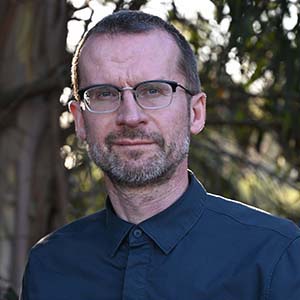 |
Skirmantas Janusonis
Faculty Member/For-Profit Employee
University Of California, Santa Barbara
Santa Barbara, United States |
I am a neuroscientist (Associate Professor) at the University of California, Santa Barbara (UCSB). I have a diploma (B.S./M.S., 1993) in Biology with Biophysics Emphasis from Vilnius University (Lithuania) and a Ph.D. in Neuroscience & Behavior (2001) from the University of Massachusetts Amherst (USA). I completed postdoctoral training (2001-2006) at the Yale University School of Medicine (USA). Since 2006, I have been a Principal Investigator at UCSB.
|
| |
Research Interests:
I have published in computational neuroscience, cellular neurobiology, comparative neuroscience, and the neurobiology of autism. I study the structure and self-organization of the brain serotonergic system and have been funded by the NSF Collaborative Research in Computational Neuroscience program, NIMH, and the California NanoSystems Institute.
Past Experience:
Describe your past contributions or participation in computational neuroscience.
My group has recently published a number of articles in computational neuroscience, focused on modeling of single serotonergic axons as paths of spatial stochastic processes. We are particularly interested in reflected fractional Brownian motion (a continuous-time process) and use transgenic mouse models, supercomputing, and analytical approaches.
Motivation:
Please explain why you want to become an OCNS director.
Computational neuroscience is becoming a core domain in the general field of neuroscience. Based on my experience since 2017, the OCNS is an exceptionally well managed organization. I already know the community, including people in leadership roles, and can offer ideas about further developments. In particular, I believe computational neuroscience may want to formulate its “Hilbert’s problems” and explicitly stimulate major advancements in mathematics. ML should remain only a part of the scope.
OCNS and CNS participation:
# of CNS meetings attended: more than 5
Review service for CNS meeting: 2-3
Programme Committee / Local Organizing Committee member: past
Member of OCNS Board of Directors: never
|
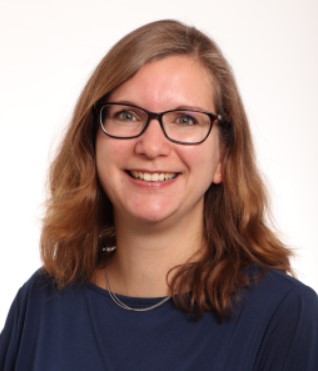 |
Kerstin Lenk
Faculty Member/For-Profit Employee
Graz University Of Technoology
Graz, Austria |
I studied Computer Science with a focus on medical applications at Lausitz University of Applied Sciences in Germany. During my PhD also in Computer Science, I developed a computational model of a biological neuronal model. I did two postdocs, one in bioinformatics (TU Dresden, Germany) and one in simulating astrocytes (Tampere University, Finland). Since April 2021, I have been an assistant professor in Computational Neuroscience at TU Graz, Austria.
|
| |
Research Interests:
My focus is on understanding the interaction between neurons and astrocytes and which role astrocytes play in diseases like epilepsy and Alzheimer's.
Past Experience:
Describe your past contributions or participation in computational neuroscience.
I attended the CNS meeting for the first time in 2010 in San Antonio. I still have several contacts from this one. I joined again in 2011, 2015, 2021 and this year in Leipzig. In 2021, we organized a workshop and this year, I was invited to give a talk during a tutorial.
Motivation:
Please explain why you want to become an OCNS director.
The CNS meeting is one of my favorite conferences. Since it is not too large, you meet friends and colleagues again and again. I like the community spirit and the mascots. I would like to contribute to the upcoming events and make the society and the annual meeting known to a wider audience.
OCNS and CNS participation:
# of CNS meetings attended: 4-5
Review service for CNS meeting: none
Programme Committee / Local Organizing Committee member: never
Member of OCNS Board of Directors: never
|
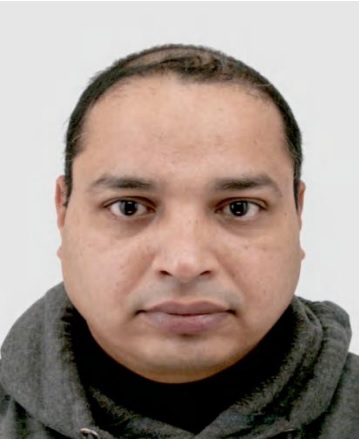 |
Chitaranjan Mahapatra
Student Member
Cnrs-Paris Saclay Institute Of Neuroscience
Saclay, France |
I am a postdoc at the Paris Saclay Institute of Neuroscience, France, affiliated with the Human Brain Project. I hold an undergraduate degree in electrical engineering from the National Institute of Sciences & Technology, Berhampur, India and earned both master's and PhD in Computational Neurophysiology from the Indian Institute of Technology Bombay, India. Additionally, I had spent 1.5 years as a postdoc employee in computational biology at the University of California, San Francisco, USA.
|
| |
Research Interests:
I am interested in employing both experimental and computational methods in neural electrophysiology to understand ion channel biophysics and calcium dynamics in various pathophysiological situations. I am also developing PyNN simulation software that enables the unified execution of various neuroscience simulation platforms using a single code.
Past Experience:
Describe your past contributions or participation in computational neuroscience.
I have attended OCNS annual meetings as a poster presenter, tutorial organizer and speaker, and volunteer. I have reviewed abstracts for the Human Brain Project and Society of Mathematical Biology meetings. Currently, I hold the position of vice chair for the mathematical neuroscience subgroup within the Society of Mathematical Biology.
Motivation:
Please explain why you want to become an OCNS director.
I joined OCNS in 2013 as a student member. As a recipient of the OCNS travel grant in 2014, I experienced firsthand its significant impact on a researcher's career. My active participation in multiple OCNS annual meetings fuels my commitment to the fair and inclusive distribution of travel awards. I am dedicated to streamlining the invitation and awarding processes, using my organizational skills to foster diversity within the OCNS member community as the travel award director.
OCNS and CNS participation:
# of CNS meetings attended: 4-5
Review service for CNS meeting: 1
Programme Committee / Local Organizing Committee member: never
Member of OCNS Board of Directors: never
|
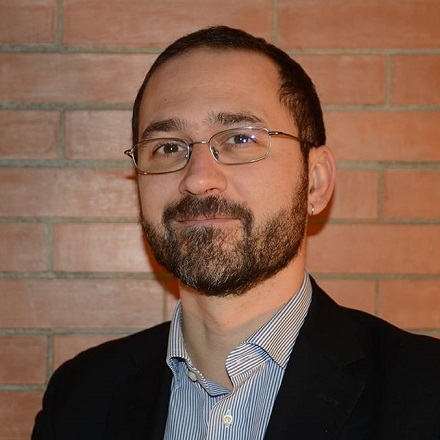 |
Alberto Mazzoni
Prospect
Scuola Superiore Sant'Anna
Pontedera, Italy |
Master Degree in Theoretical Physics at the University of Pisa with a computational thesis on neural synchronization.PhD in Neuroscience at SISSA (Trieste) with a study on invertebrate neurophysiologyTwo years in the lab of Prof. Brunel working on spiking neural networks modeling the visual cortex.Four years in the lab of Prof. Panzeri working on information processing in the nervous system.Two years in the lab of Prof. Micera working on computational aspect of neuroprostheses.Then...
|
| |
Research Interests:
...then I started my own Computational Neuroengineering Laboratory in which I combine simulations and data analsysis to understand the circuital dysfunctions leading to pathologies and to devise novel diagnostic/therapeutic tools based respectivelt on the decoding and the modulation of neural activity.
Past Experience:
Describe your past contributions or participation in computational neuroscience.
As described above, I worked in computational neuroscience since my master thesis in 2002. The full list of my papers is here: https://scholar.google.com/citations?user=b4tE6ScAAAAJI presented my works at OCNS meetings in 2023 2022 2021 2019 2017 2015 2013 2011 2008 2009 I served in the Program Committe of the CNS meetings from 2020 to 2023
Motivation:
Please explain why you want to become an OCNS director.
Two reasons:first, OCNS meetings and OCNS community have played a central role in my career, so it would be nice to give back somethingsecond, I think that my specific contribution in Computational NeuroENGINEERING could be helpful to strengthen the relationship of OCNS with clinical translation and clinical partners
OCNS and CNS participation:
# of CNS meetings attended: more than 5
Review service for CNS meeting: more than 5
Programme Committee / Local Organizing Committee member: past
Member of OCNS Board of Directors: never
|
 |
Robert McDougal
Faculty Member/For-Profit Employee
Yale University
New Haven, United States |
I am an assistant professor in Biostatistics (Health Informatics) at Yale affiliated with Computational Biology and Bioinformatics and the Wu Tsai Institute (which is dedicated to cognitive science). My formal schooling was in Mathematics (PhD; Ohio State) and Computational Biology and Bioinformatics (MS; Yale). I did postdoctoral work at Yale in Computer Science, Neurobiology, and Medical Informatics, and was research faculty in Neuroscience for 3 years before starting my current position.
|
| |
Research Interests:
I am interested in developing and applying methods for multiscale modeling, especially for incorporating intra- and extracellular chemical dynamics in computational neuroscience models. I am also interested in methods for extracting neuroscience information from computational models and from the literature.
Past Experience:
Describe your past contributions or participation in computational neuroscience.
I have been a developer for the NEURON simulator for 12 years and for the ModelDB repository of computational neuroscience models for 10 years. I have taught numerous courses on NEURON. I am an author on over 20 publications in computational neuroscience (methods and modeling) and was an elected member of the NeuroML editorial board (2016-2019).
Motivation:
Please explain why you want to become an OCNS director.
Moving towards an understanding of the brain that facilitates treating and preventing neurological disease is one of the great medical challenges of our time. I believe that strengthening connections between experimentalists and computationalists is one of the best ways to advance our understanding of the brain, and that OCNS is uniquely positioned to help do so. On the computational side, I hope to maximize our scientific contribution by promoting best practices like standards and data sharing.
OCNS and CNS participation:
# of CNS meetings attended: more than 5
Review service for CNS meeting: 2-3
Programme Committee / Local Organizing Committee member: never
Member of OCNS Board of Directors: never
|
 |
Michelle Moerel
Faculty Member/For-Profit Employee
Maastricht University
Maastricht, Netherlands |
I hold a PhD in cognitive neuroscience from Maastricht University (the Netherlands). I conducted postdoctoral research at the Center for Magnetic Resonance Research (CMRR; University of Minnesota, USA. Currently, I’m an associate professor at the Maastricht Centre for Systems Biology (MaCSBio, Maastricht University, the Netherlands).
|
| |
Research Interests:
My research uses computational modeling to integrate data across spatial scales (e.g. ultra-high field MRI data, genetics) with the aim of gaining insight in plasticity in human brain processing, both in health and disease. I focus on auditory attention, learning, and maladaptive plasticity underlying tinnitus.
Past Experience:
Describe your past contributions or participation in computational neuroscience.
I (have) use(d) neural mass models to explore neural underpinnings of (mal)adaptive auditory processing, and apply biophysical modelling to bridge non-invasive imaging data with neural computations. I would be happy to apply my experience with the organization of neuroscience symposia (FENS, SfN) and conferences (ICAC) to OCNS.
Motivation:
Please explain why you want to become an OCNS director.
OCNS is a crucial platform for sharing research outcomes and advancing knowledge in the field of computational neuroscience. As an educator and researcher in this field, I'm eager to contribute by joining the OCNS board of Directors, helping further this important platform for knowledge exchange.
OCNS and CNS participation:
# of CNS meetings attended: 1
Review service for CNS meeting: none
Programme Committee / Local Organizing Committee member: never
Member of OCNS Board of Directors: never
|
 |
Adam Newton
Postdoc Member/Non-Profit Employee
Suny Downstate Health Sciences University
New York, United States |
I am a research scientist in William Lytton's Neurosim Lab. My PhD was in complexity science, where I worked on mathematical modeling of diffusion, clearances and measurement of adenosine in the neural tissue. My postdoctoral training computational neuroscience, focused on development of the reaction-diffusion module for NEURON. Particularly improving performance and adding extracellular and 3D intracellular capabilities to the simulation platform.
|
| |
Research Interests:
I am interested in development multiscale computational neuroscience models. My current focus is on expanding previous population models of spreading depolarization to include network connectivity and vasculature. I am also working on a network model of neurons on the heart, part of the intrinsic cardiac nervous system.
Past Experience:
Describe your past contributions or participation in computational neuroscience.
I have worked software development, contributing to the reaction-diffusion module for NEURON. I have utilized this module in modeling ischemic stroke and spreading depolarization. I have also taken advantage of the improvements in intracellular 3D simulation to model the spread of PKMζ and the potential for cross-talk between nearby spines.
Motivation:
Please explain why you want to become an OCNS director.
I have presented posters and part of tutorials at several CNS meetings. I found my experience of CNS to be very beneficial and would like to contribute to its growth and success.
OCNS and CNS participation:
# of CNS meetings attended: 4-5
Review service for CNS meeting: none
Programme Committee / Local Organizing Committee member: never
Member of OCNS Board of Directors: never
|
 |
James Pang
Postdoc Member/Non-Profit Employee
Monash University
Melbourne, Australia |
I received my PhD in Physics from the University of Sydney (Sydney, Australia) in 2019. From 2019-2021, I did my postdoctoral training in the Brain Modelling Group at QIMR Berghofer Medical Research Institute (Brisbane, Australia). Since 2021, I have been a Research Fellow in the Neural Systems and Behaviour Lab at the Turner Institute for Brain and Mental Health, Monash University (Melbourne, Australia).
|
| |
Research Interests:
My research focuses on combining biophysical computational models (hemodynamic, neural field, and neural mass models), neuroimaging (structural, diffusion, and functional MRI), and connectivity to better understand the mechanisms of brain function in health, disease, and across species.
Past Experience:
Describe your past contributions or participation in computational neuroscience.
Research-wise, computational neuroscience has always been a crucial part of all my studies and pubs.Service-wise, I have been a member of OCNS since 2019. I have attended two on-site meetings (2019 and 2022) and one online meeting (2020). I also regularly organize computational neuroscience-related workshops within and outside my institute.
Motivation:
Please explain why you want to become an OCNS director.
As an Early Career Researcher, I believe it's important for us to contribute to international organizations like OCNS that play a vital role in shaping the future of the field. Computational neuroscience is a burgeoning field and becoming integral in new innovations to better understand the brain. Through involvement in OCNS leadership, I would like to help advocate for its mission of sharing and advancing knowledge so the broader community can embrace computational approaches in neuroscience.
OCNS and CNS participation:
# of CNS meetings attended: 2-3
Review service for CNS meeting: none
Programme Committee / Local Organizing Committee member: never
Member of OCNS Board of Directors: never
|
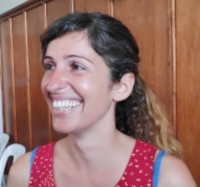 |
Athanasia Papoutsi
Faculty Member/For-Profit Employee
Imbb
Heraklion, Greece |
I received my MSc in the Brain and Mind Sciences and PhD in Computational Neuroscience from the University of Crete. For my PhD, I investigated the role of dendritic computations using detailed biophysical models. As a postdoc, I used experimental approaches to study neuronal function at Humboldt University. Currently, I am a Group Leader/Research Scientist at IMBB/FORTH where we use experimental and theoretical approaches to study how neurons succeed in performing diverse computational tasks.
|
| |
Research Interests:
My research focuses on how neuronal processing supports cortical dynamics underlying behavioral flexibility. We use a multi-disciplinary approach, where we record neural activity during behavior and we develop models that can integrate different levels of abstraction, from the single-neuron to the network level and behavior.
Past Experience:
Describe your past contributions or participation in computational neuroscience.
I have been engaged in computational neuroscience schools (ASPP, isiCNI), and organized related events at COSYNE and FENS. I attend frequently CNS, since 2009, including as an invited speaker (CNS 2015), and as a tutorial organizer (CNS 2019). I regularly review CNS abstracts and I am a member of the OCNS program committee since 2022.
Motivation:
Please explain why you want to become an OCNS director.
As I have participated in OCNS since 2009 under different roles, I have acquired extensive experience that could be useful for supporting its mission. Given my multidisciplinary background, I am keen to further promote the intersection of theoretical and experimental approaches within OCNS. Finally, I actively participate in EDI working groups within and beyond my Institute and I would be interested in participating in OCNS actions that promote equality, diversity, and inclusion.
OCNS and CNS participation:
# of CNS meetings attended: 4-5
Review service for CNS meeting: 4-5
Programme Committee / Local Organizing Committee member: present
Member of OCNS Board of Directors: never
|
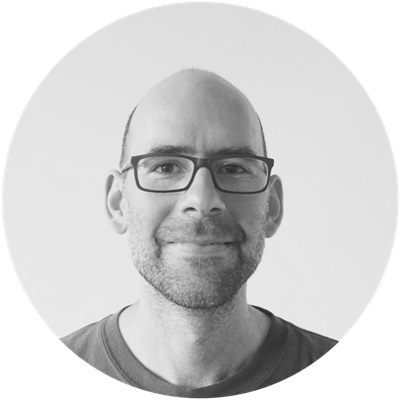 |
Spase Petkoski
Postdoc Member/Non-Profit Employee
Aix-Marseille University
Marseille, France |
After studying electrical engineering and information technologies in Skopje, I enrolled to a PhD program in the Biomedical and Nonlinear Physics at Lancaster University. I graduated in 2014, when I joined as a postdoctoral researcher the Theoretical Neuroscience Group of the Institute of Systems Neurosciences in Marseille, led by Viktor Jirsa. From 2017 I’m also part of the Human Brain Project. In 2023 I became an INSERM CR (Associate Research Professor) affiliated with the same institute.
|
| |
Research Interests:
With a background in nonlinear dynamics and computational neuroscience, my research is focused on mechanistic understanding of brain function. Together with my work on more biophysically relevant models and the model inversion, this should lead to the development of a digital twin brain, which will allow clinical translation.
Past Experience:
Describe your past contributions or participation in computational neuroscience.
I’m among organizers of the EITN school in Computational Neuroscience (2019-2023) as part of the Human Brain Project (HBP). In HBP I had several roles of task leader and deputy workpackage leader. I’m among the curators of The Virtual Brain which is a main whole-brain simulator in EBRAINS.
Motivation:
Please explain why you want to become an OCNS director.
With my work in computational whole-brain modeling and mean-field models, CNS has been my top conference of interest since my PhD. Having experience from holding key personnel positions in the Human Brain Project, I think I’m in a good position to help shape the future of computational neuroscience, especially towards more clinically oriented applications. My initial interest would be in helping organize the workshops and tutorials.
OCNS and CNS participation:
# of CNS meetings attended: 4-5
Review service for CNS meeting: more than 5
Programme Committee / Local Organizing Committee member: never
Member of OCNS Board of Directors: never
|
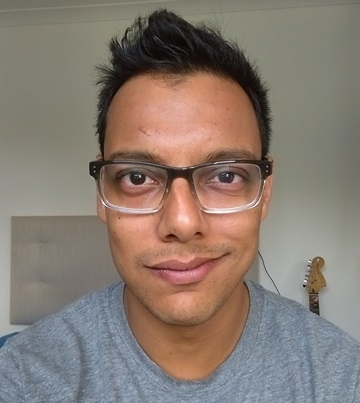 |
Ankur Sinha
Postdoc Member/Non-Profit Employee
University College London
London, United Kingdom |
I am an early career post doctoral researcher at the Silver Lab at University College London where I work on various computational modelling and related infrastructure projects. I am part of the core development teams for the NeuroML and Open Source Brain initiatives and contribute to a number of other (neuro) science related open source projects.
|
| |
Research Interests:
I am interested in using data driven biophysically detailed computational models to fill in gaps that we cannot yet address experimentally. I tend to focus on single neuron/dendritic computation, synaptic, structural, and homeostatic plasticity and their contributions to the circuit function. I am also a strong supporter of Open Science.
Past Experience:
Describe your past contributions or participation in computational neuroscience.
I have been related to OCNS in one way or another since joining as a member and later a Board Member (as webmaster) during my PhD years. I helped organize the first online OCNS conference in 2020, and the free online satellite tutorials in 2022 as part of the INCF/OCNS Software Working group which I continue to co-chair.
Motivation:
Please explain why you want to become an OCNS director.
OCNS is uniquly placed to promote computational neuroscience and develop our community. Being back on the Board will help me ensure that OCNS continues to prioritise intiatives that further the community, via more events, educations sessions and resources, and specialized teams such as the working groups. I would especially like to focus on career development activities for students and early career researchers to ensure that we are all better prepared to lead successful scientific careers.
OCNS and CNS participation:
# of CNS meetings attended: 4-5
Review service for CNS meeting: none
Programme Committee / Local Organizing Committee member: past
Member of OCNS Board of Directors: past
|
|












